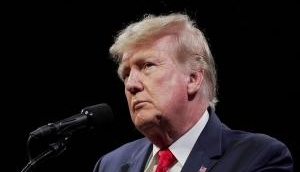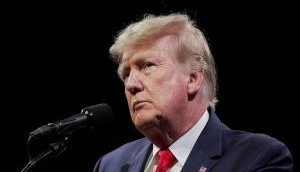No ISIS in South Asia: Even the Pakistan Taliban is opposed to it

The mission
- South Asia is home to 1/3rd of the world\'s Muslims
- ISIS is trying to establish its base in South Asia. But it hasn\'t succeeded so far
The opposition
- There is opposition to the ISIS from diverse quarters. Darul Uloom Deoband has slammed it
- Even the Pakistan Taliban has refused to accept ISIS\' leadership
More in the story
- Can ISIS make inroads into South Asia?
- What are the threats?
- How can ISIS be thwarted in South Asia?
It has become clear that the Islamic State of Iraq and the Levant (ISIS) has failed to grow any firm roots in the Indian sub-continent, which accounts for one third of the Muslim population in the world.
This is evident in three developments that have taken place in the past three months.
Three developments
The latest event has occurred in the past fortnight when the Tehreek-a-Taliban Pakistan (more known as Pakistan Taliban) have clearly stated that it does not accept the Caliphate of ISIS, nor does it accept Abu Bakr al-Baghdadi as the Caliph. There is also speculation that the Afghan Taliban is sharing intelligence against the ISIS, with Russia. Of course, the Taliban has denied this.
Also read - ISIS isn't ravaging Afghanistan. But who wants to take a chance
Earlier, in November, Dar-ul Uloom Deoband in Uttar Pradesh, the oldest seminary of the sub-continent's Muslims had decried the jihad of the ISIS. Its vice-chancellor, Maulana Abul Qasim Nomani had said not just ISIS, "any organisation, working in any country and belonging to any religion but spreading terrorism must be slammed". "Deoband had issued an elaborate fatwa in 2008 to call terrorism un-Islamic. Our religious texts say someone killing an innocent in name of Islam is a crime as heinous as demolition of the Kaaba," he had said as reported by the Times of India.
Finally, the dual killing of foreign tourists in Bangladesh during the period was initially claimed by obscure operators as an act of terrorism by ISIS. But the Hasina government had quickly scotched the talk of the ISIS being involved by stating that they were the acts of the local home-grown outfits, possibly provoked by the Jamaat-e-Islami (JeI).
Darul Uloom Deoband has slammed ISIS and equated terrorism with the destruction of the Kaaba
Retired intelligence specialists say that the ISIS may not be active yet in the region but a future spurt in activity cannot be ruled out.
Around the time ISIS was gaining territory in Iraq and Syria, there were driblets of information in newspapers here that the ISIS threat is 'real' in the region.
Then there were cases of some self-radicalised youths, including young girls, being rounded up by the police from disparate places like Uttar Pradesh, Andhra Pradesh or Maharashtra.
However, with increased vigilance at points of egress like airports, these youth were picked up before they could leave the country. Till now, there are only two reported cases of Indian Muslims getting killed in the West Asian theatre of battle.
Need for deradicalisation
Experts feel that the authorities need to raise the tempo of 'deradicalisation' by telling them about the history of the 'returnees' who had gone to join the jihad in Afghanistan first, against then Soviet Union in 1980s and then the US-led NATO operations against the Taliban.
The ruling theme of these experiences had been that they were treated as minions by the West Asian jihadis. On top of that, while Rawalpindi had sought to push through the Afghan fighters into Kashmir in the early-1990s, the experience of the Kashmiris had not been particularly "happy." This led the ISI handlers to eventually stop the infusion.
In the recent months ISIS flags have been waved by some sections of the youth of Kashmir, but the security agencies have mostly ignored them terming it as their "over-enthusiasm."
All these factors are now constituting the nascent de-radcalisation process that has been launched, albeit in a limited way.
More in Catch - 'We Will Hunt You Down'. #Anonymous declares 'war' on ISIS
ISIS and its ideology: Does India need to worry?
First published: 28 December 2015, 9:01 IST





![BJP's Kapil Mishra recreates Shankar Mahadevan’s ‘Breathless’ song to highlight Delhi pollution [WATCH] BJP's Kapil Mishra recreates Shankar Mahadevan’s ‘Breathless’ song to highlight Delhi pollution [WATCH]](https://images.catchnews.com/upload/2022/11/03/kapil-mishra_240884_300x172.png)

![Anupam Kher shares pictures of his toned body on 67th birthday [MUST SEE] Anupam Kher shares pictures of his toned body on 67th birthday [MUST SEE]](https://images.catchnews.com/upload/2022/03/07/Anupam_kher_231145_300x172.jpg)






